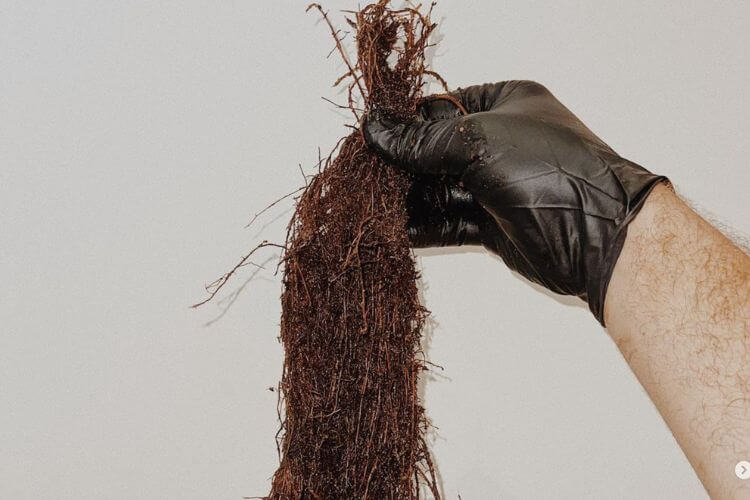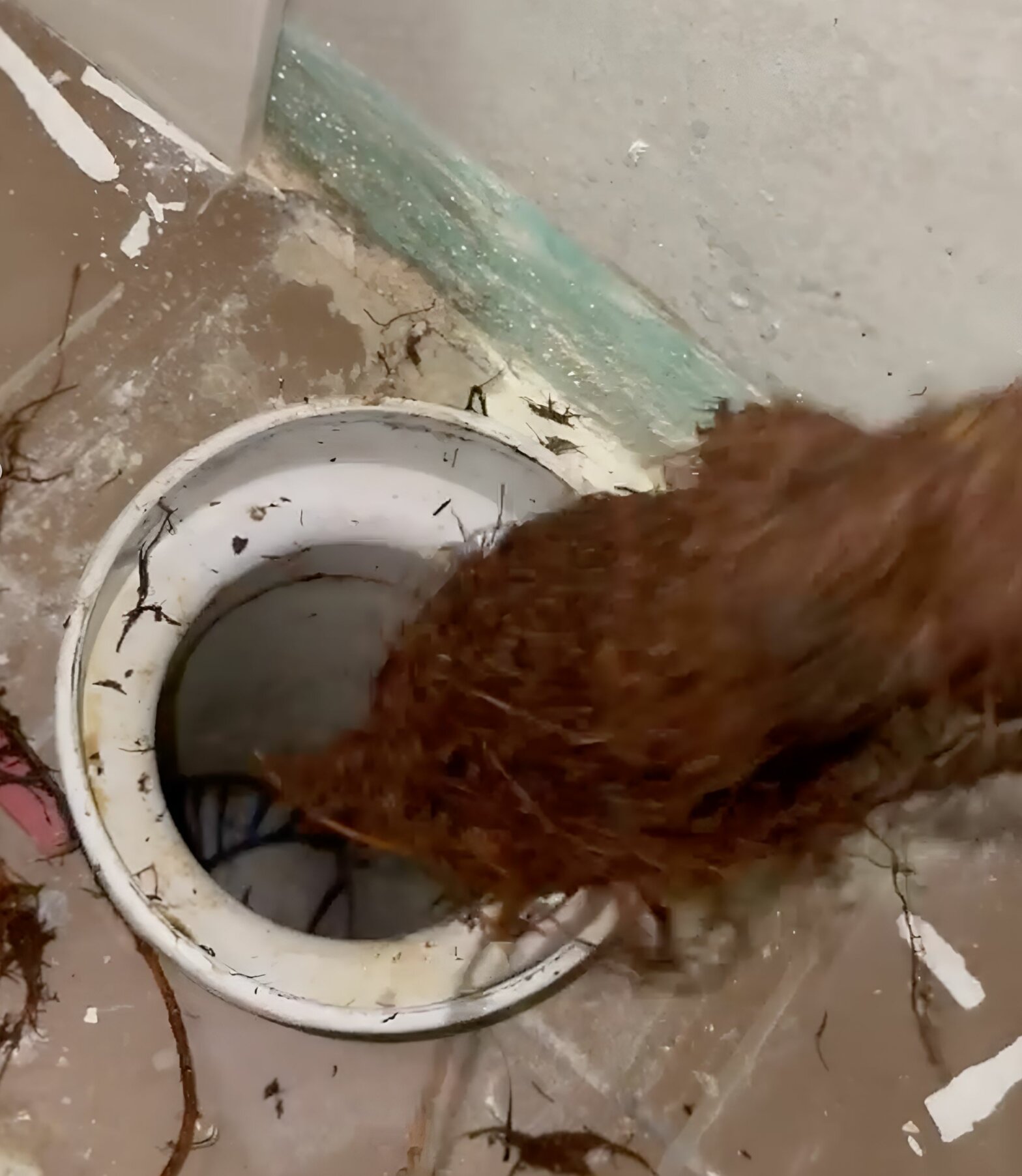Drain blockages are one of the most common reasons customers contact The Relining Company.
Being aware of common drain hazards and how to stop certain materials from blocking your pipes can help you avoid the expense and inconvenience of a blocked pipe in your home.
Common Materials That Cause Blocked Pipes
To avoid a blocked pipe causing a smelly mess in your home, think twice before putting any of these things down the drain. Blocked pipes can become a serious health hazard if they are not dealt with correctly.
Food waste
If you tend to rinse the dishes off in the kitchen sink without the protection of a drain cover to catch food scraps, you risk a block.
Grease and fat
Ever heard of a fatberg? They are not pretty. A build-up of grease and fat in your pipes not only causes a problem for your home but can lead to larger blockages in the sewer system.
Hair
Hair strands may seem harmless when there are just a few, but a build-up of hair is one of the most common ways to block pipes and drains.
They tangle together, effectively making a net that catches other debris, creating blockages.
How to Deal With Food Waste Blockages
Prevention tips
The solution is simple – don’t put food down the drain. But so often, we rinse small food scraps off dishes and small amounts of coffee left in the plunger down the drain for months on end with no problem.
To avoid plumbing problems in the long run, you should invest in a countertop compost bin to scrape plates and rinse coffee grounds into, and install a sink strainer to catch leftovers.
DIY solutions
There are some steps you can take at home if you experience a block.
- Avoid using a chemical cleaner and opt for an enzymatic cleaner instead.
- Try using hot water, baking soda and vinegar to flush the drain.
- Invest in a plunger. A tried and tested way of clearing light blockages.
When to call a professional
If the water flow has stopped completely, it’s vital to call in a professional to assess your plumbing system.
In the meantime, avoid using your kitchen sink or risk flooding your home.

How to Deal With Grease and Fat Blockages
Prevention tips
Stop tipping cooking oil or fat down the sink.
Simply washing residue from pots and pans can lead to an accumulation of grease that causes a blockage of this sort.
Make sure you regularly flush the kitchen sink with cleansing substances and avoid sending solids down the drain and exacerbating the problem.
DIY solutions
- Combine baking soda and vinegar and let sit in the drain for 15 minutes before flushing the solution with hot water.
- Try using a good old-fashioned plunger to get rid of some of the build-up.
When to call a professional
Kitchen sinks are designed to prevent foreign objects from causing clogs so attempting to use a drain snake or drain auger from the opening will be ineffective.
If you don’t feel confident enough to disconnect pipes under the sink yourself, you’ll need to call a plumber. If you find the drainage system continually suffers blockages, it may be time to investigate further and consider pipe relining for a permanent solution.

How to Deal With Hair Blockages
Prevention tips
It’s normal for people to shed up to 100 hairs a day.
While not all of that goes down bathroom drains, washing hair loosens the buildup of strands. This means that with a few people using the same shower, hundreds of hairs could wash down the shower drain each day.
Install hair strainers in showers and ensure they are cleaned regularly to avoid blockages caused by clumps of hair.
DIY solutions
First try flushing pipes with a natural solution of baking soda and vinegar, followed by hot water.
If flushing pipes is ineffective, try using a drain auger to gently dislodge the clog. Go gently to avoid damaging the piping or causing the drain auger to become stuck.
When to call a professional
If your drainage system is continually having these sorts of blockages despite taking precautions to prevent them, it’s likely these clogs are a symptom of a bigger problem.
If left unresolved, plumbing problems become harder to repair and therefore, more expensive to resolve. A professional CCTV inspection can help find the cause of the issue.
Other Common Blockage Materials
Nasty smells and gurgling sounds are some of the signs of a blocked sewer line. In most cases, blockages occur for these common reasons.
- Soap scum. Soap can solidify part way down the pipe, clinging to the sides and preventing the free flow of water. Regular drain maintenance is the best way to prevent clogs caused by soap scum.
- Foreign objects. Plumbers will tell you that foreign objects caught in drains come in all shapes and sizes. From accidentally flushed toys, baby wipes and sanitary pads to jewellery, clothes, dentures and cash – it pays to look twice before you flush.
- Toilet paper. You can’t avoid using toilet paper, but if it’s blocking drains it may be time to consider pipe relining. The toilet paper is likely becoming caught in cracked pipes or deteriorated rubber seals.
- Mineral build-up. Homes with hard water with a high mineral content can suffer from blocked pipes due to calcium buildup. If not dealt with, these minerals can also lead to pipe corrosion.
- Tree roots. You might be able to temporarily clear a blockage caused by tree roots, but this cause of blocked pipes requires a professional plumbing service and the use of robotic cutting techniques.

General Tips for Preventing Blocked Pipes
Just because you can’t see your pipes doesn’t mean you should avoid maintaining them.
Pipes and drains require regular maintenance, just as other parts of your home do.
Learn how to keep drains clean and healthy and schedule a drain inspection with The Relining Company to help you avoid costly repairs.
Deal with Your Blocked Pipes Once and for All
Pipe relining can prevent your pipes from becoming blocked by offering a permanent solution to cracks and leaks. It’s a mess-free and cost-effective method to fix ageing, damaged or blocked pipes for good.
To learn more about how to restore drainage systems to their former glory with our no-dig pipe repair system, contact The Relining Company on 0488 885 166 or see our website to learn more about the pipe relining process.
Back to Top